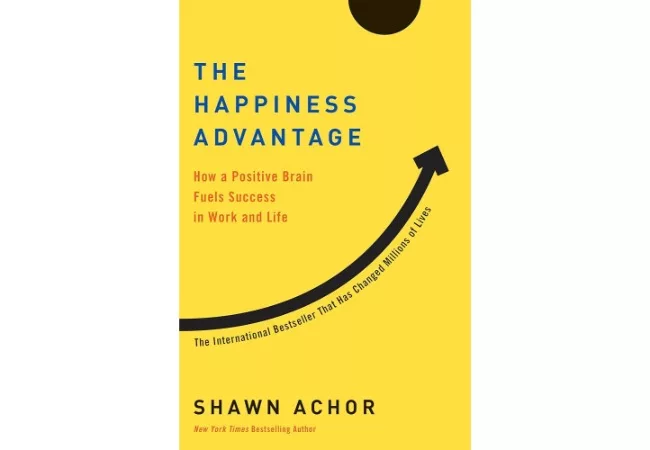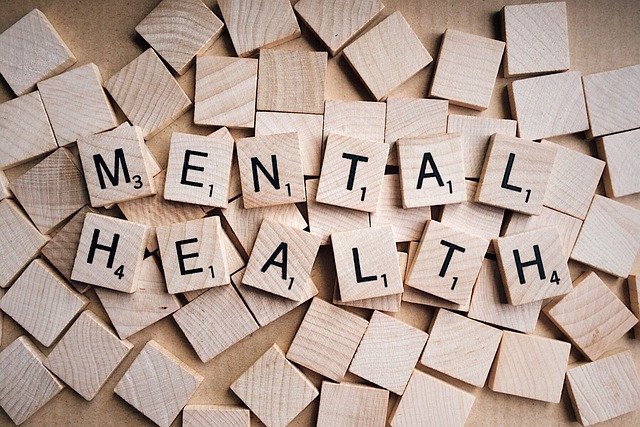I came across an article about psychology in which Becky White, a Licensed Marriage and Family Therapist, stated that “everyone feels the ” feeling like you are not good enough” , at times, and that someone else is probably feeling the exact same way as you, right now, in this moment.” This just hits home for me. Feeling like I’m not good enough or will ever be is something that I am always fighting off in my life.
When I was a heavier girl, that feeling was like a constant battle; it was so hard for me to love myself. I thought I would be able to love myself when I shed all the extra pounds, but as you may guess, that feeling remained mostly the same even when I was smaller. So, I figured maybe this feeling is something runs deeper and requires inner work.
In this post, I want to share some thoughts and knowledge I have gathered in relation to “when you feel you’re not good enough”. I hope you find it interesting, and any discussion or opinion from you is welcomed.
Perhaps it’s not your fault that you feel you’re not good enough
Let me say, when you feel you’re not good enough, most of it is not your faults. The feelings, in fact, most likely stems from the environment, how you grow up, the parental’s influence on you, and also your nature of human that was once necessary for the survival of ours ancestors in the past.
The Survivor-Based Comparison Tendency in Humans
According to the clinical psychologist Ronald D. Siege, “The propensity to evaluate ourselves and compare ourselves to others, which was once useful for survival, is actually hardwired into the human brain,”
Back in the day, according to Siegel, early humans had to get in the competitive spirit to win the evolutionary race and pass on their genes. This meant constantly sizing themselves up against others. Getting acceptance was a life-or-death situation back then. So, your fear of rejection or feeling inferior today is a possible result of our survival instincts.
Now, thanks to social media, this habit of comparing ourselves has become a bit of an unwanted side effect.

This tendency also could developed to an extreme level, akin to perfectionism syndrome, where some feel the need to be perfect at everything they do in life, often reaching an obsessive level. This obsession frequently leads to chronic stress, anxiety, procrastination, and impaired mental health as common consequences.
The past trauma experiences
Past traumatic experiences from childhood can significantly impact your sense of self-worth and contribute to feelings of inadequacy.
For example, if a person endured abuse, neglect, or constant criticism during childhood, it can create a distorted self-perception, where they internalize the negative messages received.
These experiences may foster deep-seated feelings of not being good enough, as the trauma may have instilled a belief that they are inherently flawed or undeserving of love and acceptance.
And it’s also partly your fault.
You maybe focus on too much external value
Research is saying that folks who chase after external rewards like fame, power, wealth, and beauty just to boost their popularity end up feeling more anxious, depressed, and dissatisfied. It’s clear that the relentless pursuit of these external markers takes a toll on our mental well-being.
Now when it comes to think about what truly leaves a lasting impression on someone’s mind about you. Do you think they’ll be flipping through your resume or tallying up your trophies?
You’re way more than just your achievements or possessions. What genuinely sticks is the emotional connection and the kind of person you are—qualities that go beyond the surface.

Our negative thoughts are based on feelings rather than evidence
Often, our negative thoughts are based on feelings rather than evidence.
Do you notice that when you are in the loop of insecurity, you meticulously look for evidence that you are a nobody, that you don’t deserve to be loved, or that you are not living up to your full potential?
Even a small incident, but with different people, will become different in meaning depending on that person’s perspective. Or, I can say, the feelings will largely determine the meaning of a fact that happened to you.
You might be trying to be someone else.
Nowadays, there’s a lot of pressure to behave and think a certain way in society. You’re being told how to dress, what you should do for a career. You may feel pressure to be more successful, have a better job, or make more money. You’re even being told what type of person you should date and even how you should act around them.

It’s easy to fall into the trap that someone else is living life perfectly right now without any problems. When this happens, it can make you feel like being yourself isn’t good enough. If someone else’s life appears to be better than your own, it can make you believe that being yourself isn’t only bad but also boring.
So, when you compare your life with others and find that theirs is better, it’s easy to start being envious or even have a feeling of being worthless.
Does loving myself do any good for me at all?
Loving yourself is not just a cliche being said for content creation or simply a thing to make you feel better. It does come with tons of benefits that have been proven so many time by science.
First of all, loving yourself unconditionally makes you happier. In the book “The Happiness Advantage,” Dr. Shawn Achor mentioned research that brought together studies from over 200 scientific studies on nearly 275,000 people.


The findings indicated that happiness leads to success in nearly every aspect of a person’s life, including marriage, health, friendship, community involvement, creativity, and much more (source: Lyubomirsky, S., King, L., & Diener, E. (2005), “The benefits of frequent positive effect: Does happiness lead to success?” Psychological Bulletin, 131, 803-855).
In another study titled “Social Support, Resilience, and Self-esteem Protect Against Common Mental Health Problems in Early Adolescence” by Qiaolan Liu, PhD, Min Jiang, PhD, Shiying Li, PhD, and Yang Yang, the link between self-esteem and common mental health problems was explored.
Self-esteem is the result of interactions between subjective and objective aspects and is fully reflected through self-acceptance and self-value.
The study found that self-esteem and social support negatively predicted common mental health problems. Additionally, self-esteem positively predicted a person’s level of resilience when facing difficult challenges in life.
According to the study, having good self-esteem is like a shield for your mental health and how well your mind works. People with a healthy level of self-esteem tend to see themselves in a positive way. This shows up as more confidence, a willingness to improve, and the ability to handle problems and stress better in life.
You can read more about the study here.
The story of my classmate…
When I was in college, I had a friend who was very special. He wasn’t a top student academically, nor did he excel in school activities. His academic performance was somewhat lacking, and he even failed a subject for forgetting to submit his homework. He was clearly smart; I think it’s just that studying didn’t interest him much. Despite being an average student in class, he didn’t seem bothered at all. He always felt content and at ease with himself, exuding a vibe of self-confidence and self-love, regardless of what happened.
Whenever I walked with him anywhere, he seemed to know everyone, waving, smiling, and striking up conversations with almost anyone he met, even if it was the first time he met them. Naturally, he had a really large social network. Despite his unimpressive academic performance, he eventually became a highly successful person. Even during his school days, he pursued his own hobbies, such as selling game trading cards, and he earned a substantial amount of money from this venture.
When I spent time with him, I always found him to be the most attractive and magnetic person in the group. I always felt a sense of self-confidence and contentment when I was around him and that was probably why he could get along well with so many people.
If I have to pinpoint what made him successful and one of the happiest people I ever met, it’s definitely not his studies, nor is it his hard work. It’s his unshakeable self-esteem.
How to deal with “when you feel you’re not good enough”:
“We can’t hate ourselves into a version of ourselves we can love.” ~Lori Deschene
Ask yourself what the worst-case scenario is if you’re not perfect.
According to Siegel, the game plan is to adopt this “unconditional self-acceptance” ,an attitude similar to what you’d get from a good parent: “I’ll love you no matter what.”
Siegel even throws in a curveball: try being deliberately imperfect. Things like missing a highway exit on purpose, singing your heart out in public, or just casually not bothering to dress up before leaving the house. We make ourselves be fine with all those things; then, gradually, we accept that we are human, and it’s normal to make mistakes and mess up sometimes.
In fact, to be good enough, you need to be imperfect.
Have you ever think that “good enough” is better than “perfection”?
In 1953, Psychoanalyst Donald Winnicott introduced the concept of a “good enough mother” which is derived from his extensive observations of mothers and their babies. He concluded that being a good enough mother was more beneficial than striving for perfection, a notion he presented in his work “The Child, the Family, and the Outside World” (1957).
This is a very interesting book that I recommend you to read, especially if you are a parent.

Remember that the people you compare yourself to is comparing themselves to others too
Hey, you know, you’re not really in a competition with anyone else. According to studies, about 10 percent of our thoughts involve comparisons of some kind. There’s this theory called social comparison theory, which says that people figure out their own worth based on how they stack up against others.
Theodore Roosevelt called comparison “the thief of joy,” and I think it’s so true.
Especially, when you compare yourself with others, your comparison is almost never a fair one. For example, when we think about social life, you may feel like they’re less social than others. But, in fact, when making these comparisons, people often pick the most social folks they know. and compare them to these people. We are most of the time always compare ourself based on a very biased assumptions.
I won’t deny completely the benefits we may get from comparing ourself to others. Comparisons can be powerful motivators, it makes us realize the things we can improves in ourself and know what to learn from others. But don’t let comparison consume you. It’s cool to learn and grow, but not at the expense of your mental well-being.
When you feel you’re not good enough, drop everything and just solely focus on having fun for a moment
It could be something as simple as taking a walk in nature, playing your favorite music, or engaging in a creative hobby. By consciously redirecting your focus to a positive and enjoyable activity, even if only for a brief moment, you create a mental and emotional space that allows you to recharge and gain perspective.
Taking a moment for yourself like this not only boosts your mood but also reminds you that you deserve moments of happiness, no matter what you might think are your flaws.

Challenge Negative Thoughts
Challenging negative thoughts to foster self-love involves a step-by-step process.
For instance, consider the negative thought, “I’m not good enough because I made a mistake at work.”
You can begin challenging this negative thought by first identifying it, then question its basis and seek evidence to the contrary, such as instances of your past success or positive feedback in work.
Instead of saying, “I’m not good enough,” reframe it to a more balanced and constructive statement like, “I made a mistake, but it’s an opportunity for growth, and I have the skills to improve.”
You can try taking on different perspectives when it comes to mistakes. Imagine if these were not your mistakes but were made by another person, maybe your co-workers. Would you treat that person or react in the same way that you treat yourself?
Final words
To sum it up, navigating the path of self-love is all about taking deliberate steps in a world that often pushes us to doubt ourselves. When you feel you’re not good enough , remember that it’s normal for you to feel like that. Just take a break, focus on joy, and remind yourself that you deserve those moments of happiness, flaws and all. Embrace your unique self, relish those small wins, and recognize that, in our flaws, we find the true essence of being human.
Self-love isn’t a finish line; it’s an ongoing adventure.







Hey, this is a super complicated thing. I grew up in house where if I talked I got either screamed at or rejected so my confidence is a real challenge in my life. I’m 38 and still affected by this.
money is a big factor for men. We judge our value by our ability to bring home the bacon. That makes people feel like crap about themselves through no fault of there own. Have a good one. Great and interesting topic.
Your point about the societal pressure on men to equate their value with financial success is an important one. The expectations placed on individuals, especially in terms of traditional gender roles, can indeed lead to feelings of inadequacy.
If you ever feel like discussing this further or exploring ways to address these challenges, know that there are resources and professionals who can provide support.
Thank you for sharing your thoughts on this complex topic. Wishing you all the best on your path to greater confidence and well-being.
Thank you so much for this post ! It was exactly what I needed in this time of self-questioning. I love the way you write , and I’m so grateful for all the great tips you share here ! Thanks again for a beautiful post , it was really what I needed.
You’re so welcome! I’m thrilled to hear that the post came at the right time for you and that it resonated. Your kind words about my writing mean a lot, and I’m grateful to know that the tips were helpful. If there’s ever anything specific you’d like more insights on or if you have any questions, feel free to reach out.
Wishing you continued inspiration and positive vibes on your journey of self-discovery!
The world is large, and there are many things to be occupied with rather than comparing ourselves with others. Long ago, I heard that small people think about people, average people think about things, and great people think about ideas. Think of the Henry Fords, the Thomas Edisons and the Wilber Wrights of the world. If they spent their time comparing themselves with others, the world would be less fortunate and without cars, light bulbs, and airplanes! There is much to think about, let’s choose the better options.
Absolutely love this perspective! It’s a powerful reminder that our focus can shape our impact on the world. The idea that great minds think about ideas rather than comparing themselves with others is so inspiring.
It’s true—some of the most significant advancements and innovations come from those who dare to dream big and focus on their unique ideas.
Thanks for sharing such a thought-provoking reflection!